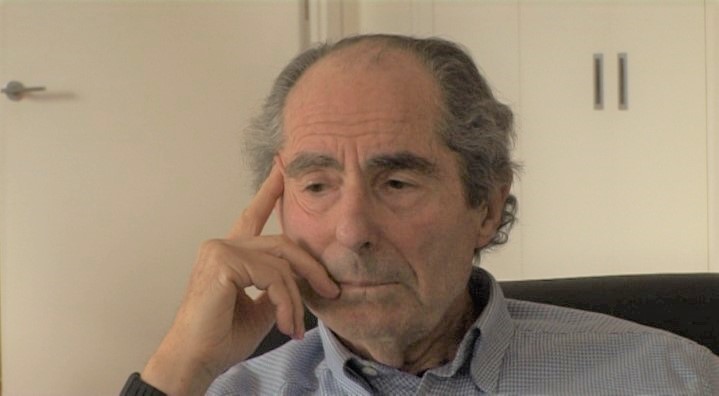NEXT STORY

The manuscript about the girl who blew up a building
RELATED STORIES

NEXT STORY

The manuscript about the girl who blew up a building
RELATED STORIES


|
Views | Duration | |
|---|---|---|---|
| 81. Portnoy's Complaint: were you ashamed of it? | 419 | 01:00 | |
| 82. 'What could outlandishness do for me?' | 280 | 01:44 | |
| 83. The Holocaust | 463 | 02:55 | |
| 84. A man named Gans | 273 | 01:52 | |
| 85. My rejected play about Gans | 268 | 01:58 | |
| 86. Further education: the trial of Ivan the Terrible | 301 | 02:20 | |
| 87. Primo Levi and other survivors | 869 | 03:56 | |
| 88. Hiroshima, and the end of the war | 363 | 03:19 | |
| 89. Vietnam | 357 | 03:43 | |
| 90. The manuscript about the girl who blew up a building | 352 | 02:17 |


Well, I was no child when the war in Vietnam began, and so I was aware of it mightily, responded to it – in my way, mightily – and lived through the tumult and turbulence on the home front. I guess Vietnam begins in the early '60s, and like everyone – mostly everyone else – I... I wasn't really alert to what it meant at the beginning, but once Kennedy died and Johnson began to increase the number of troops in Vietnam and the war expanded, I was unhappy. And you saw it. You saw it every night on the television, and it was so... monstrous and... so unnecessary. That's a political judgment, but that was the one I came up with, as did many other people. And it went on and on and on and on. It didn't really stop until 1974. That's about... 10 years. And I was vexed by it. It wrote letters to the editor, I marched in marches – one thing I really don't like doing very much is marching in marches, but a lot of people who didn't like marching in marches, marched in these marches. And I was in New York at that time… I was living in New York… and the... one of the centres of the anti-war activity in America was here... here in New York, and I went to teach-ins. I didn't perform in any of them. I believe I... I went to Southeast Asia in the... in 1969 or '70 for about six weeks, and I... I didn't go to Vietnam; I went to all the other countries around it. And I went there because I had an... an assignment from Look Magazine, and I don't know what I wrote about it. I don't remember any longer, but I was able to see some things, which were all the GIs who were in... in Bangkok on R&R. These traumatised bodies, you know.
The... the Vietnam War did not influence my work right off. I would say that the noise... the noise and the theatrics of the '60s, which certainly had been stimulated by the Vietnam War among other things, but the noise and theatrics of the '60s had worked its way in my bloodstream, and so I wrote Portnoy's Complaint. It isn't the only reason I wrote it, but it helped.
The fame of the American writer Philip Roth (1933-2018) rested on the frank explorations of Jewish-American life he portrayed in his novels. There is a strong autobiographical element in much of what he wrote, alongside social commentary and political satire. Despite often polarising critics with his frequently explicit accounts of his male protagonists' sexual doings, Roth received a great many prestigious literary awards which include a Pulitzer Prize for fiction in 1997, and the 4th Man Booker International Prize in 2011.
Title: Vietnam
Listeners: Christopher Sykes
Christopher Sykes is an independent documentary producer who has made a number of films about science and scientists for BBC TV, Channel Four, and PBS.
Tags: Vietnam, New York, Southeast Asia, Look Magazine, Bangkok, Portnoy's Complaint, John Kennedy, Lyndon Johnson
Duration: 3 minutes, 43 seconds
Date story recorded: March 2011
Date story went live: 18 March 2013